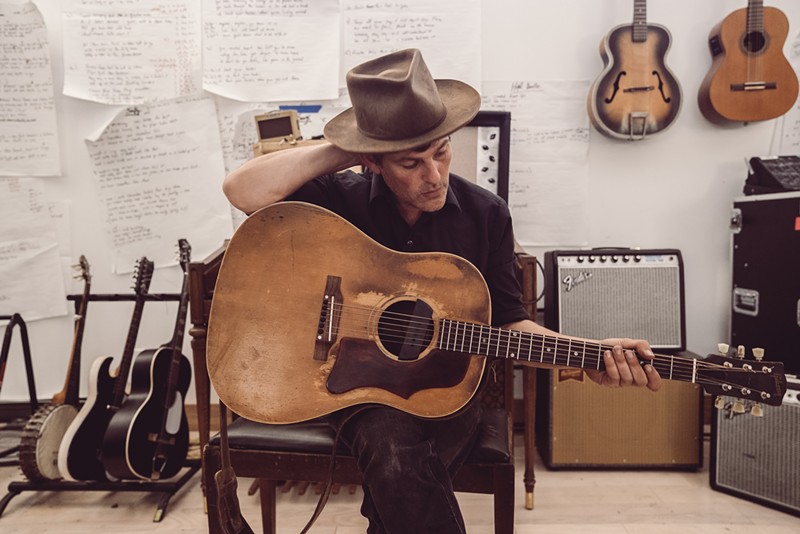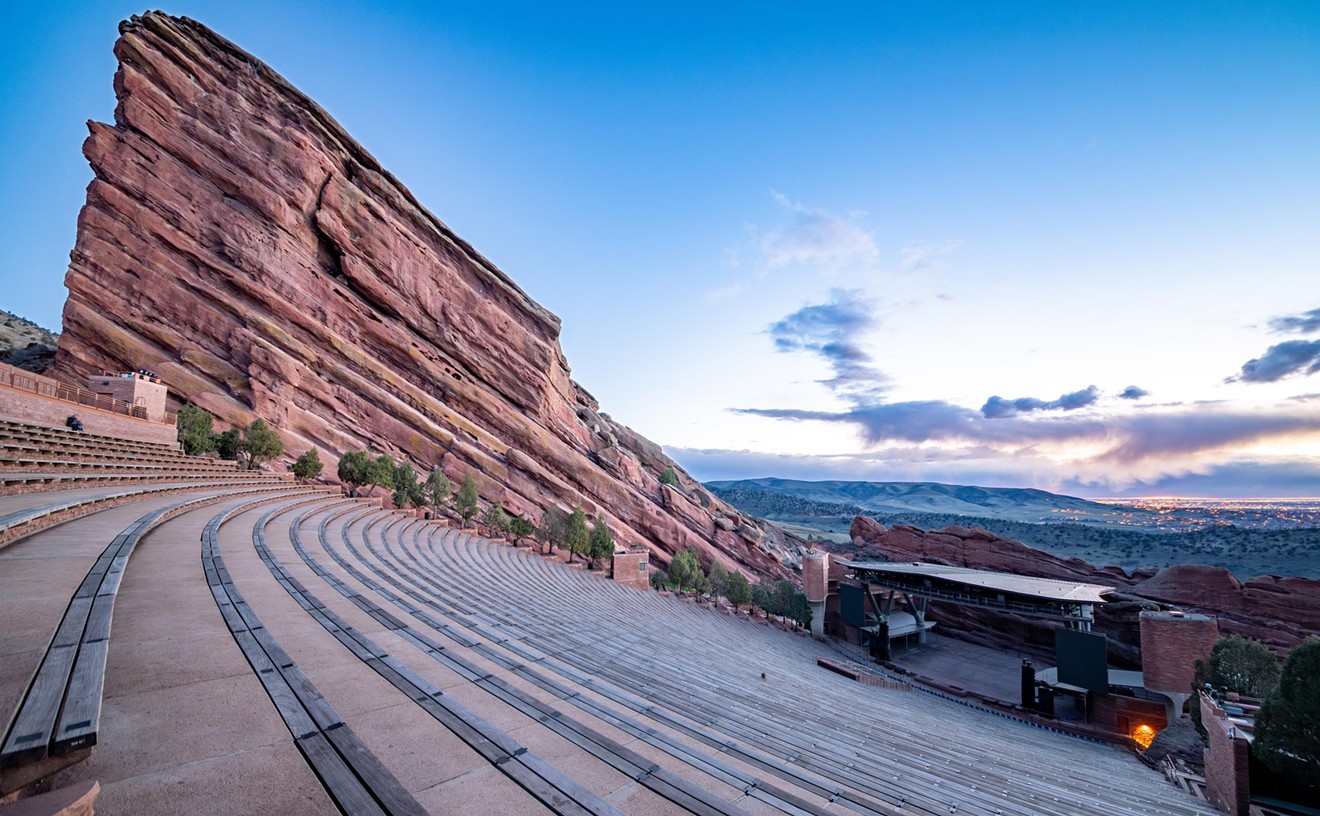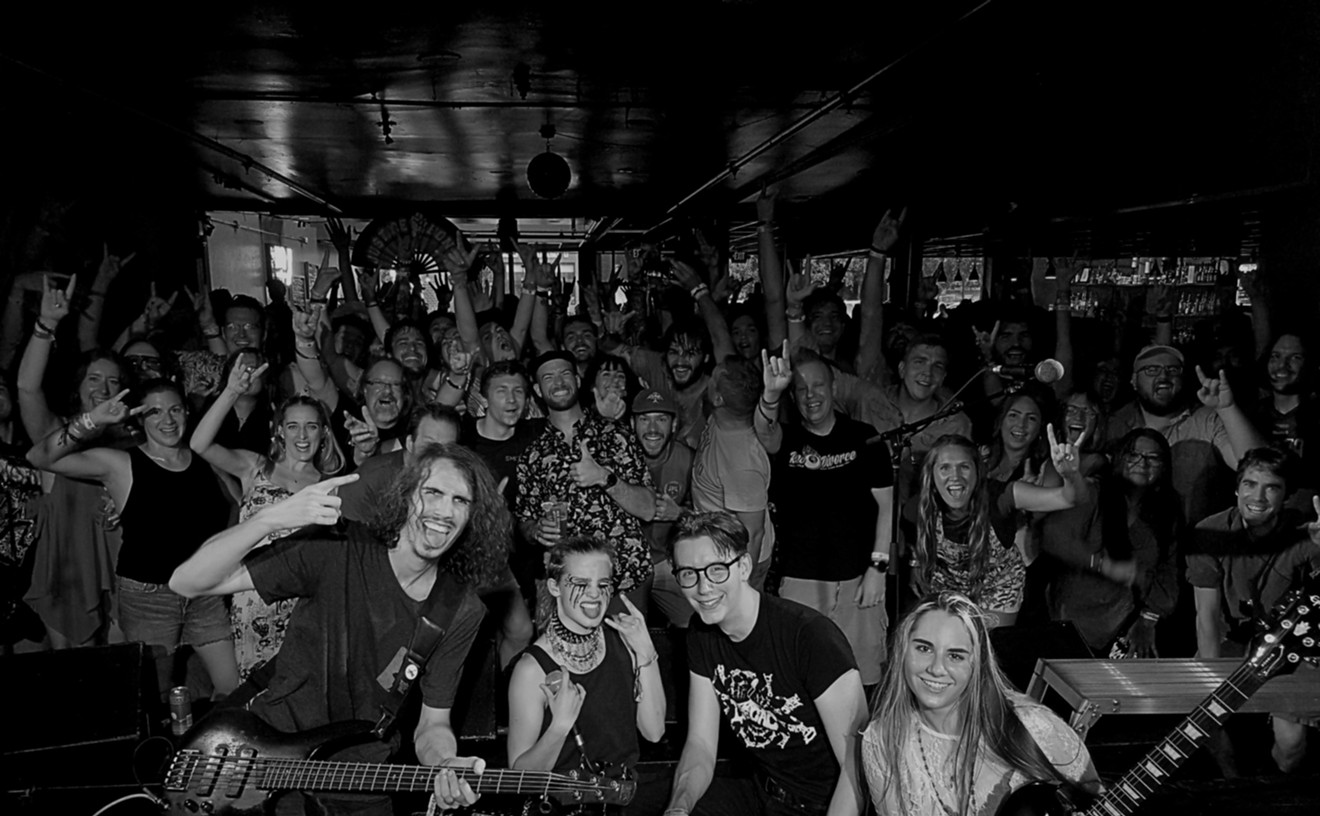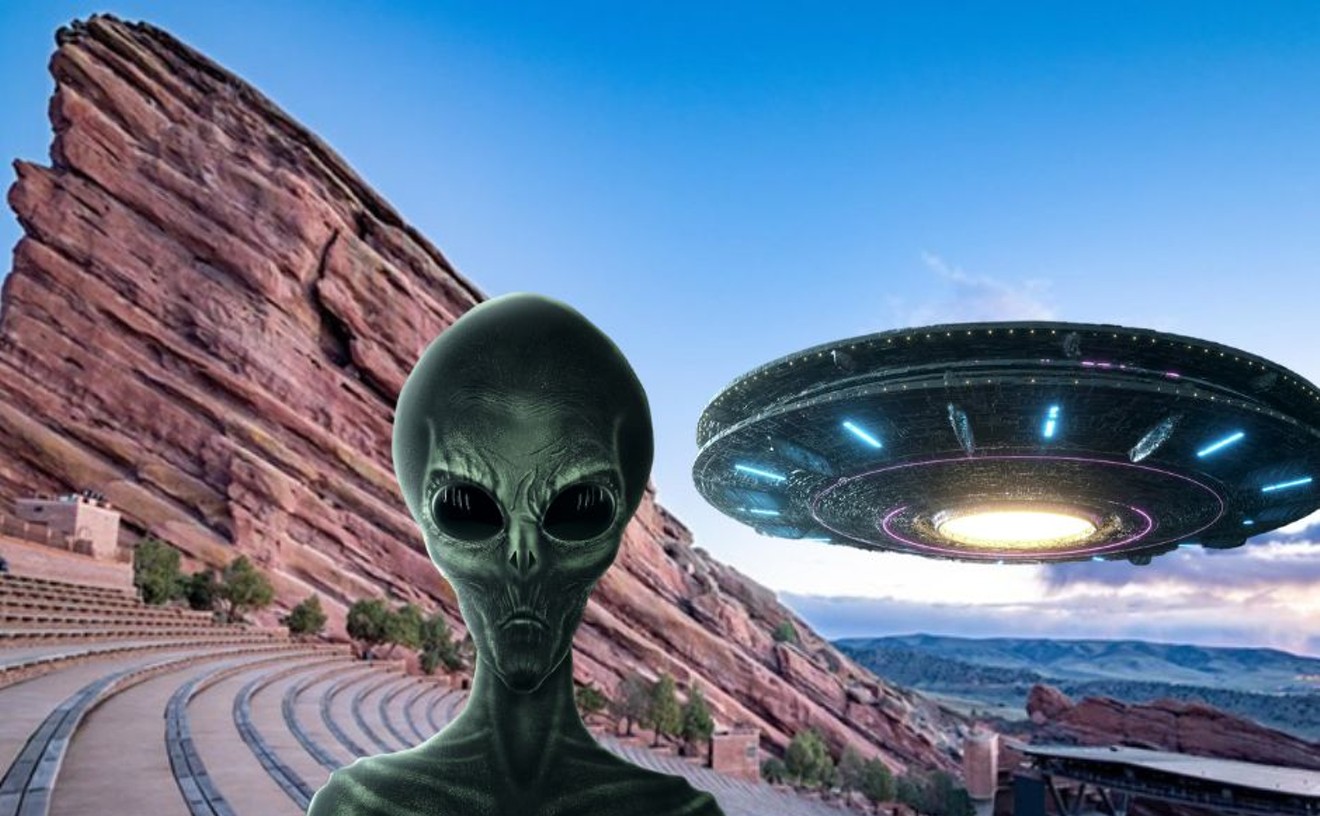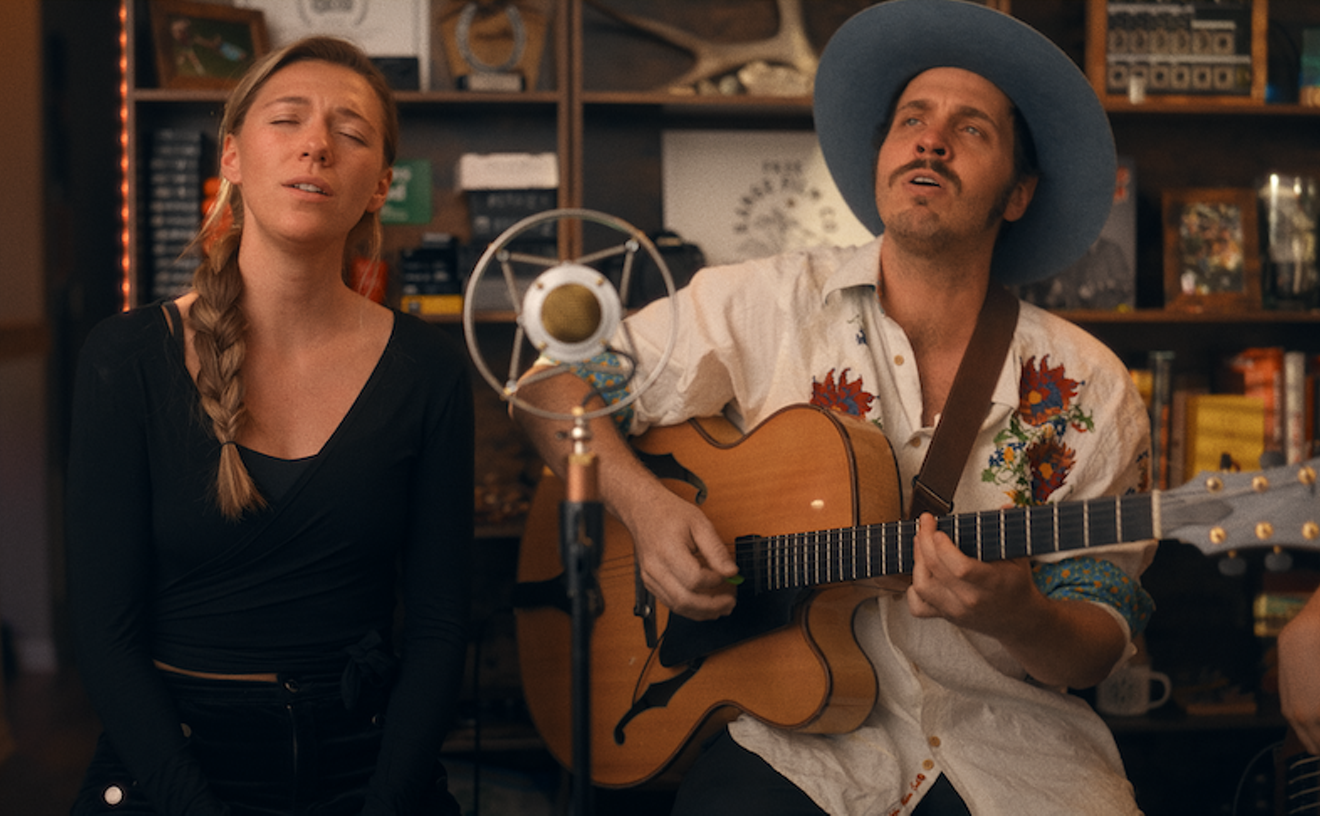Gregory Alan Isakov is no stranger to practicing patience. Whether it’s growing crops on his four-acre Boulder County farm or harvesting harmonies in the barn studio not far from the fields, the do-it-all singer-songwriter knows it takes time to nurture and massage the land and the muse from which he operates.
Such fortitude has given Isakov a different perspective when it comes to making records, but he still prefers to immerse himself in the creative process as much as possible. “I write in these large-format ways where I’m just surrounded by all these pieces of music all the time,” he says, including covering the walls in Post-it notes filled with lyrics and song ideas.
Much like farming, which is one of Isakov’s longtime passions and livelihoods, writing music begins with sowing seeds, though some songs may not sprout into full-fledged, record-ready compositions until years afterward, he explains. That turned out to be the case as he worked and focused on writing his new record, Appaloosa Bones, on which he played nearly all the instruments. The album was released this month via Dualtone Records and Isakov’s own label, Suitcase Town Music.
“I have songs that just didn’t make other records in the past, and some songs are like fifteen years old, the seeds of them,” he says. “I got a chance to re-look at a few of those. For me, this record is about writing something that reminded me of starting out writing songs in the first place — that curiosity that happens when you’re first writing songs,” as he did as a teenager.
Isakov says he has never viewed records as "merch,” so he prefers to take as much time as he needs to craft his full-length releases. He lets the new songs settle in and simmer before plucking them from his mind whenever he decides they’re ripe. It helps that he’s a prolific writer, too, and seemingly unable to contain the wellspring he tapped two decades ago. For Appaloosa Bones, Isakov tracked more than thirty songs initially — he says that's a “normal amount” for him — before paring it down to the final eleven that appear on the official track list.
“I write a lot of songs,” he says. “Then what I do is start listening, because I start figuring out what the songs are trying to do. I’m such a record guy. I love making records, so some of the songs that didn’t quite make this particular record, I loved, but they just didn’t fit the landscape of the other songs.”
His original vision for Appaloosa Bones, a followup to his Grammy-nominated 2018 album, Evening Machines, centered around more of a folksy, lo-fi, rock-and-roll sound — a “bare bones” offering, as he calls it. But the album eventually took a different path, ultimately becoming a throwback to Isakov’s early years on the road when he was “playing out for the first time,” he adds, mainly across the West and Southwest.
“The songs kind of told me, ‘No, fuck you, this is what it’s going to be,’” laughs Isakov, who was born in South Africa and raised in Philadelphia. “After a while, I was just holding on to the reins, waiting to see where it was going and how the material worked.”
He’s glad he didn’t hinder the new material in any way, because he’s still fond of those road-worn memories and quick to reminisce about the dusty bars or keen coffee shops that served as proper venues back then. “I was really trying to get back into that mindset,” he explains. “These wide-open landscapes had this quietness and expansive deepness that grounded me and evoked a lot of the curiosities I was drawn to when I started writing songs.”
He dug deeper into that frame of mind while visiting and co-writing some songs with West Texas musician friends Ron Scott and Johann Wagner. Engineer Andrew Berlin then helped Isakov lay down the dozens of tracks that sprang forth within the last five years between releases. Rolling Stone called the finished product “beautiful collisions of acoustic instruments, Isakov’s soothing vocals and otherworldly noise.”
Even with such praise, the editing process is never truly finished in Isakov's mind. “There’s always a reason it just doesn’t sound finished to me,” he admits. “That gauge inside of me is just based on my feelings of usefulness. Like, is this song useful to me or to you in some way? Sometimes I feel like a song is just more useful to me. And I tend to steer away from that.”
With a tour planned in support of Appaloosa Bones, the songs will continue to grow and come to life from the stage, especially during Isakov's trio of hometown shows over Labor Day weekend. He'll play the Mission Ballroom on Saturday, September 2; Dillon Amphitheater on Sunday, September 3; and Red Rocks Amphitheatre on Monday, September 4. The Dillon concert is sold out, but tickets are still available for the Denver and Morrison shows.
Fans can expect “a really quiet, simple kind of show,” Isakov says, much like the understated nature of the record.
“We try to build a whole landscape of music and experience for people. It’s always different every night. I never know what to expect, either,” he says, adding that it’s “five years of work that’s all being harvested.
“It’s a little bit terrifying, but so exciting," he continues. "Like, ‘Oh, these aren’t mine anymore at all.’ It’s a very freeing experience, whether five people are going to listen to it or five thousand. It’s the same feeling.”
It's safe to say that more than five people will be listening to Appaloosa Bones, or anything Isakov puts out, as his previous five releases have garnered more than one billion streams to date. His music has also been used on shows such as Grey’s Anatomy, The Haunting of Hill House and This Is Us.
Farming takes an abnormal amount of dedication and determination, but Isakov credits his father and his former job as a restaurant dishwasher for his workhorse approach to everything he does with music.
“I remember my dad being like, ‘You really need to love this job and put all yourself into this and all your integrity and be faster than you were before and do the best job that you possibly can,’” he recalls. “I feel that sense of integrity with work. I really want to throw my whole being into it.”
But as with agriculture, songwriting isn’t always rooted in a cause-and-effect relationship.
“Time is so elusive with this stuff because you go in, and it’s not like this evolutionary thing, like if you spend this much time doing these things, you’re going to get these results,” Isakov explains. “I can be in there for months and not have anything. Or I can be in there after dinner one time and get three songs. It’s so elusive, the whole process.”
In a sense, songs are “alive,” he adds, so letting them roam free at times is necessary, too.
“We’re playing songs in our show that I wrote fifteen years ago. They’re living things, so they’re changing every night,” he says. “There’s more space or less space. We’re playing with that space all the time. That’s what makes a great song for me to play at a show. Some songs don’t want to be recorded, and some songs that were recorded don’t want to be played live.
“These are going to be around, hopefully, after we die,” he continues, "so let’s really put our whole selves into [them]," even if they’re “never going to be perfect or all the way right. At least I know I bled into this thing.”
It’s that type of self-satisfaction in the job at hand that keeps Isakov going. Much like providing produce to local establishments, his farm’s CSA members and Boulder County food bank Community Food Share, Isakov says that releasing new music “is a long act of service to me and the world.
“All I can do is hope that it makes people feel something, and that it’s useful and inspiring for them in their lives," he concludes.
Gregory Alan Isakov, 7 p.m. Saturday, September 2, Mission Ballroom, 4242 Wynkoop Street (tickets $51-$1,500); 7 p.m. Monday, September 4, Red Rocks Amphitheatre, 18300 West Alameda Parkway (tickets $120-$1,000).
[
{
"name": "Air - MediumRectangle - Inline Content - Mobile Display Size",
"component": "12017618",
"insertPoint": "2",
"requiredCountToDisplay": "2",
"watchElement": ".fdn-content-body",
"astAdList": [
{
"adType": "rectangle",
"displayTargets": "mobile"
}
]
},{
"name": "Editor Picks",
"component": "17242653",
"insertPoint": "4",
"requiredCountToDisplay": "1",
"watchElement": ".fdn-content-body",
"astAdList": [
{
"adType": "rectangle",
"displayTargets": "desktop|tablet"
},{
"adType": "rectangle",
"displayTargets": "desktop|tablet|mobile"
}
]
},{
"name": "Inline Links",
"component": "18838239",
"insertPoint": "8th",
"startingPoint": 8,
"requiredCountToDisplay": "7",
"maxInsertions": 25
},{
"name": "Air - MediumRectangle - Combo - Inline Content",
"component": "17261320",
"insertPoint": "8th",
"startingPoint": 8,
"requiredCountToDisplay": "7",
"maxInsertions": 25,
"watchElement": ".fdn-content-body",
"astAdList": [
{
"adType": "rectangle",
"displayTargets": "desktop|tablet"
},{
"adType": "rectangle",
"displayTargets": "desktop|tablet|mobile"
}
]
},{
"name": "Inline Links",
"component": "18838239",
"insertPoint": "8th",
"startingPoint": 12,
"requiredCountToDisplay": "11",
"maxInsertions": 25
},{
"name": "Air - Leaderboard Tower - Combo - Inline Content",
"component": "17261321",
"insertPoint": "8th",
"startingPoint": 12,
"requiredCountToDisplay": "11",
"maxInsertions": 25,
"watchElement": ".fdn-content-body",
"astAdList": [
{
"adType": "leaderboardInlineContent",
"displayTargets": "desktop|tablet"
},{
"adType": "tower",
"displayTargets": "mobile"
}
]
}
]

